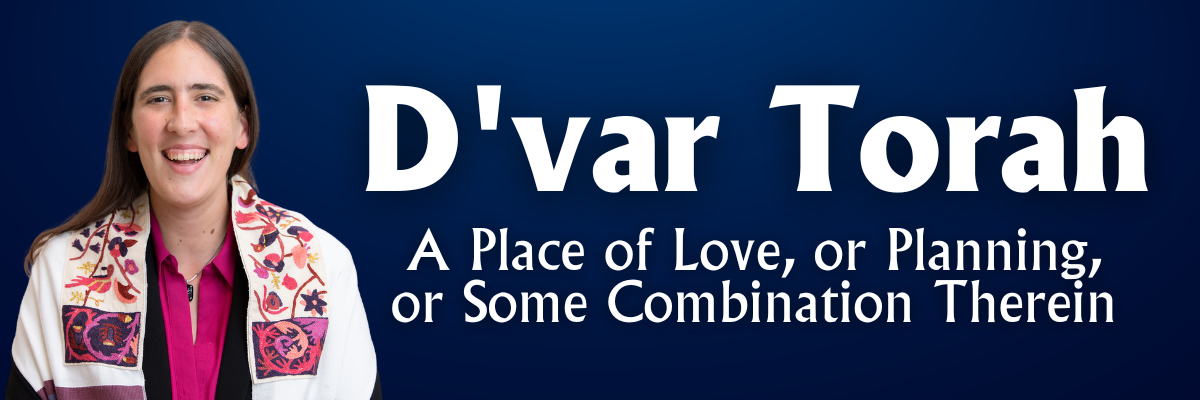A Place of Love, or Planning, or Some Combination Therein
05/18/2023 07:27:07 AM
Rabbi Alexandra Stein
| Author | |
| Date Added | |
| Automatically create summary | |
| Summary |

This week, Jewish communities all around the world start reading the fourth book of the Torah — “Numbers” in English, after the census as the beginning of the book, and “B’midbar” (“in [the] wilderness”) in Hebrew, after the first word in the book.
Numbers/B’midbar starts by telling us about the Ancient Israelites in a moment of extreme order and obedience to hierarchy, as they line up by the thousands to be counted — just as they were commanded. This moment in which they are grandly numbered will be one of the last moments of (seemingly) perfect order and obedience to hierarchy in the book. Over the course of the rest of Numbers/B’midbar, which tells the story of 38 years of wilderness wandering, more and more people will step up to challenge authority figures — asking, in a very different way, to be counted.
People who aren’t able to celebrate Passover on time will ask to have a makeup version a month later, and God and Moses will agree. Korach will lead an insurrection, asking “aren’t we all holy?” The Daughters of Zelophehad will petition Moses when they realize that Israelite inheritance law is discriminatory, and God will tell Moses to tell them that they’re right. God will tell Moses to speak to a rock, and instead Moses will strike it.
The journey from obedience to hierarchy to a more dialogical approach to leadership in Numbers/B'midbar runs in parallel to the Israelites’ physical journey: this week, and next week too, they’re still near Mount Sinai, where they’ve been since receiving the ten commandments in Parshat Yitro, which we read back in the winter. Over the course of Numbers, they will go on the bulk of their forty-year journey through the wilderness, ending on the edge of the Promised Land.
Censuses are often about recognition and planning; though the text doesn’t say it explicitly, the census we read about this week is often read, including by other texts in the Tanakh, as a military census, to help the community prepare for battle. The medieval commentator Rashi read it more relationally, saying that God counted the Israelites because God loved the Israelites.
Whether we choose to read the census in the first chapters of Numbers/B’Midbar as coming from a place of love, or planning, or some combination therein, I think we can also read the recognition in the census as a reminder: that as we set out on journeys through the wilderness, together with our communities and our societies, we need to see each other.
This Shabbat, may we make time and space to see the people around us in all of their beautiful specificity. May we make time to learn from and with each other, across similarities and also across differences — and may we do our best to meet each other’s needs.
Shabbat Shalom!
Rabbi Alexandra Stein
Tue, October 14 2025
22 Tishrei 5786
Join Our Mailing List
Privacy Settings | Privacy Policy | Member Terms
©2025 All rights reserved. Find out more about ShulCloud
